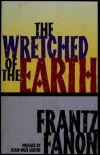
The Reprieve is a 1945 novel by Jean-Paul Sartre. It is the second part in the trilogy The Roads to Freedom. It concerns life in France during the eight days before the signing of the Munich Agreement and the subsequent takeover of Czechoslovakia in September 1938.

Il muro uscito in Francia nel 1939, a un anno di distanza da La nausea, èprobabilmente l'opera letteraria più forte e rappresentativa del grandeintellettuale francese. Motivo comune dei racconti riuniti in questo volume èl'antitesi tra coraggio e viltà: una diversa attitudine, di fronte alla vitadei diversi …

Il diavolo e il buon Dio è un'opera teatrale del 1951 prodotta dal filosofo francese Jean-Paul Sartre e messa in scena per la prima volta al Théâtre Antoine il 7 giugno 1951 per la regia di Louis Jouvet. La prima italiana fu l'8 dicembre 1962, Teatro Stabile di Genova, per la regia di Luigi Squarzina e per interpreti …

The Condemned of Altona is a play written by Jean-Paul Sartre, known in Great Britain as Loser Wins. It was first produced in 1959 at the Théâtre de la Renaissance in Paris. It was one of the last plays Sartre wrote, followed only by his adaptation of Euripides' The Trojan Women. The title recalls his formulation "Man …

The Wretched of the Earth is a 1961 book by Frantz Fanon, a psychiatric and psychologic analysis of the dehumanising effects of colonization upon the individual, and the nation, from which derive the broader social, cultural, and political implications inherent to establishing a social movement for the decolonization …

4 plays about an existential portrayal of Hell, the reworking of the Electra-Orestes story, the conflict of a young intellectual torn between theory and conflict and an arresting attack on American racism. An existential portrayal of Hell, the reworking of the Electra-Orestes story, the conflict of a young …

 English
English Español
Español Deutsch
Deutsch


